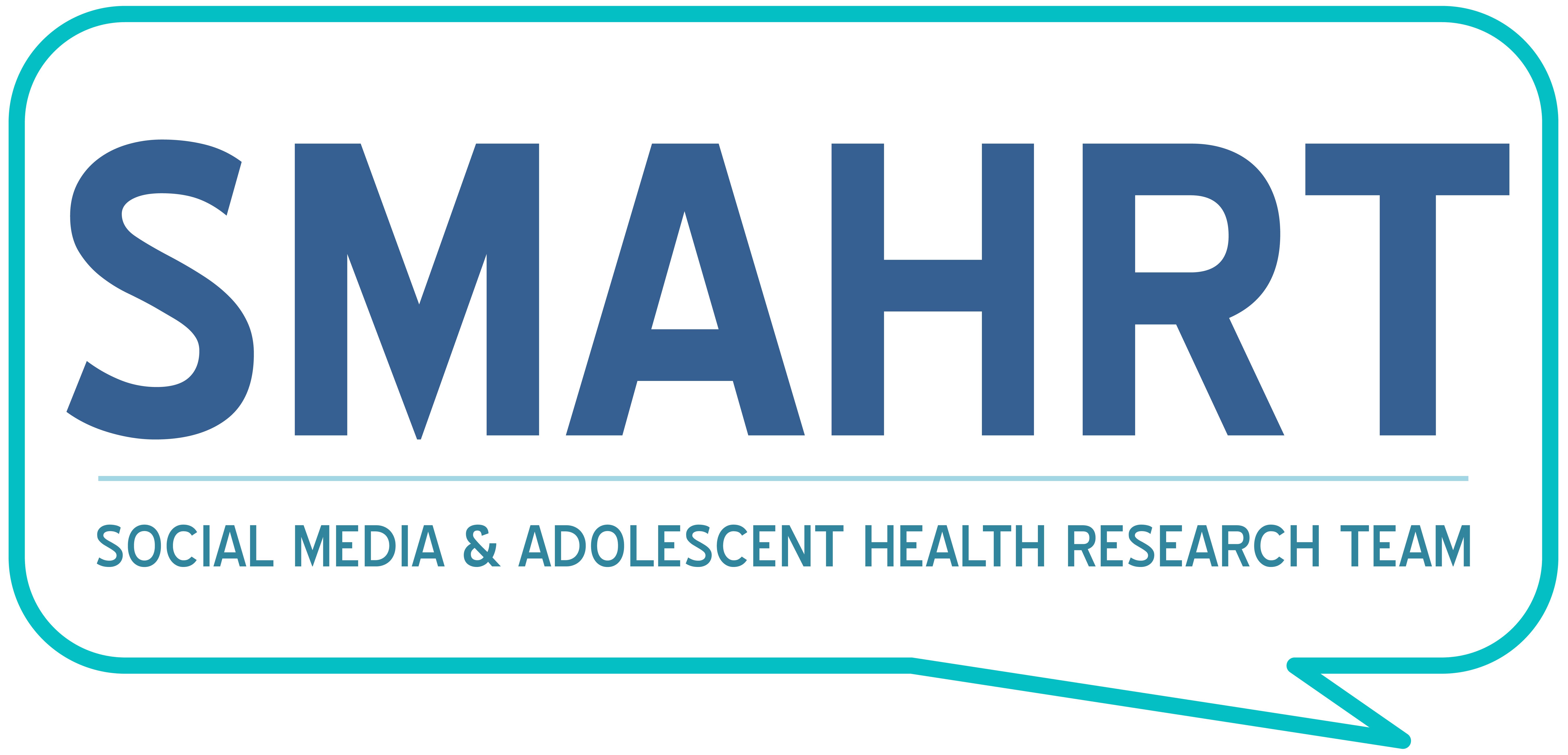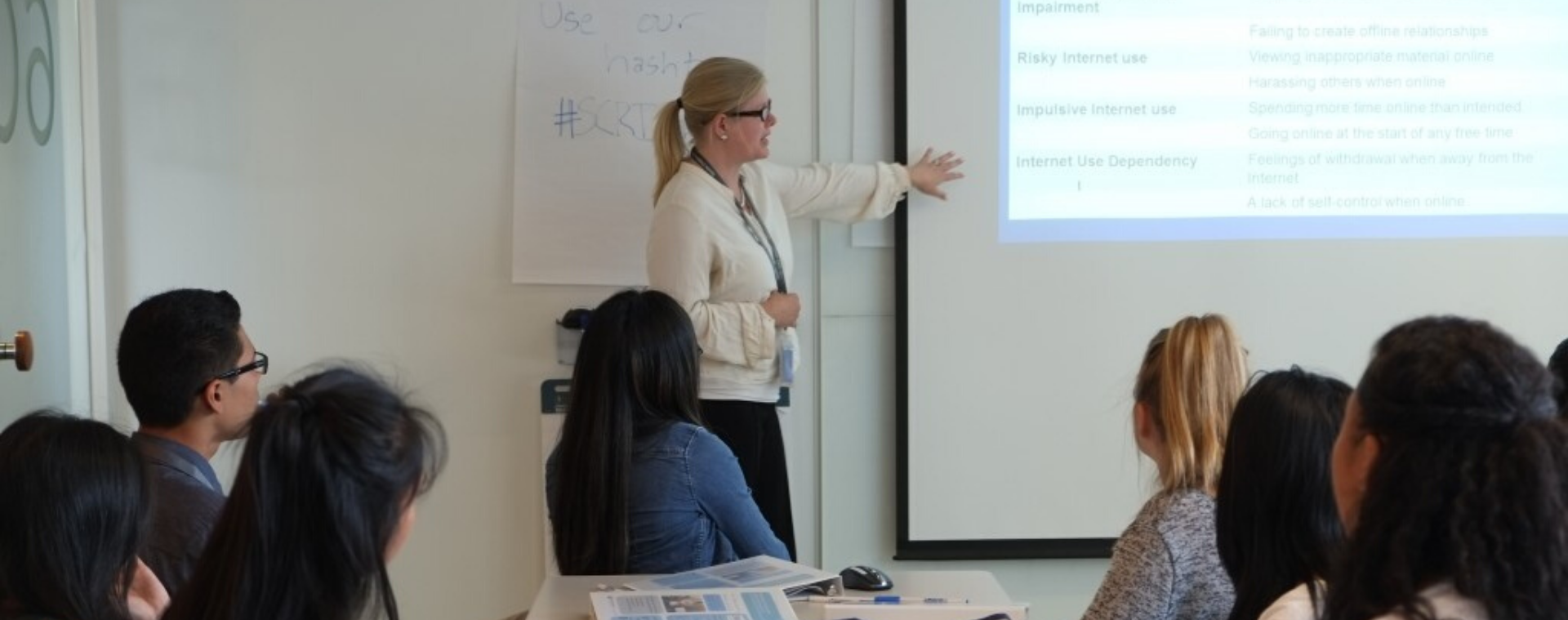
Over the course of the 2020 academic year, six SMAHRT interns and two General Pediatric and Adolescent Medicine (GPAM) interns completed their own independent research projects.
Throughout the fall and spring semesters, interns learned about the research process and worked together to complete their own research projects.
During the fall semester interns:

Brainstormed research questions

Completed a research proposal

Wrote an abstract
Once the spring semester began, interns:

Collected their data

Analyzed their data

Presented their work at the UW-Madison Undergraduate Research Symposium
For many of our interns, this was their first experience conducting their own research. After their presentations we asked them what their key takeaways were from their research experience.
1. When picking a project don’t limit yourself
For these projects we asked that research questions fit within the realm of social media and adolescent health. In this field of research there are hundreds of questions that could be asked. Don’t limit yourself to your initial idea, try to brainstorm two or three ideas to give yourself some options.
2. Research is an iterative process; you need to be flexible
While part of the research process is to create a proposal that details the methods of the project, not everything goes according to plan. There is always a chance that coding categories need to be updated or changed. Or your data could answer other questions that you were not aware of before completing your analysis. Being flexible is also important when you need to pivot your approach, such as your approach to recruiting participants for your study.
3. Keep your research grounded in the overarching goal of your project
Research is an iterative process, but you should not stem too far away from your original goal. It can be easy to get forget why your research matters while you are collecting your data. However, you can always go back to your proposal or abstract to remind yourself of your research question. Your research question should also be specific, so you are able to reach your goal.
4. It’s ok to collect lots of data
Your research questions and codebook need to be concise, but it is ok to collect more data than what you will use in your first presentation. You can always go back to the left-over data and publish or present it somewhere else.
5. Be open to learning about processes or tools you are unfamiliar with
Learning to submit an IRB can be intimidating for anyone, but it is not impossible. Don’t limit your project because you aren’t open to learning. The same can be said for different programs that could be used to answer your research questions, like the Linguistic Inquiry and Word Count (LIWC), a text analysis software or Dedoose, a qualitative analysis platform.
6. Don’t be afraid to ask for help
Conducting your own independent research project does not mean that you are alone. Research is a collaborative effort. It is ok to ask for help when you get stuck. Having different people look at your project offers new perspectives.
7. Stop questioning yourself
It is important to ask for help when you need it, but it is also important that you go with your instinct. Even if this is your first research experience, that doesn’t mean you don’t already have the tools to complete it. You understand your project and your data the best, you just need to trust yourself.
It is always a rewarding experience to see our interns’ projects being presented and to hear what they learned over the last year.
Want to hear more about their experiences? Click here to listen to the podcast.

